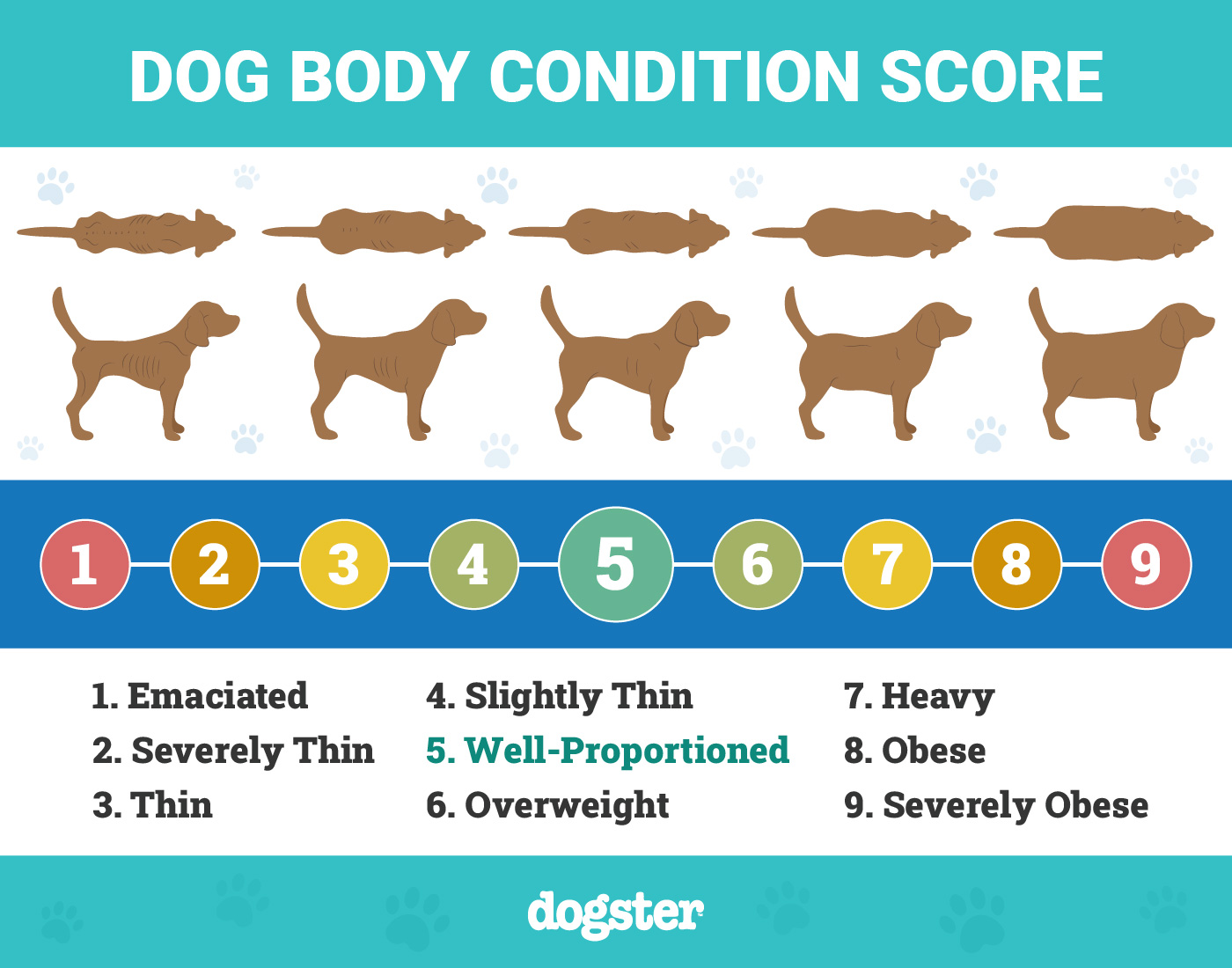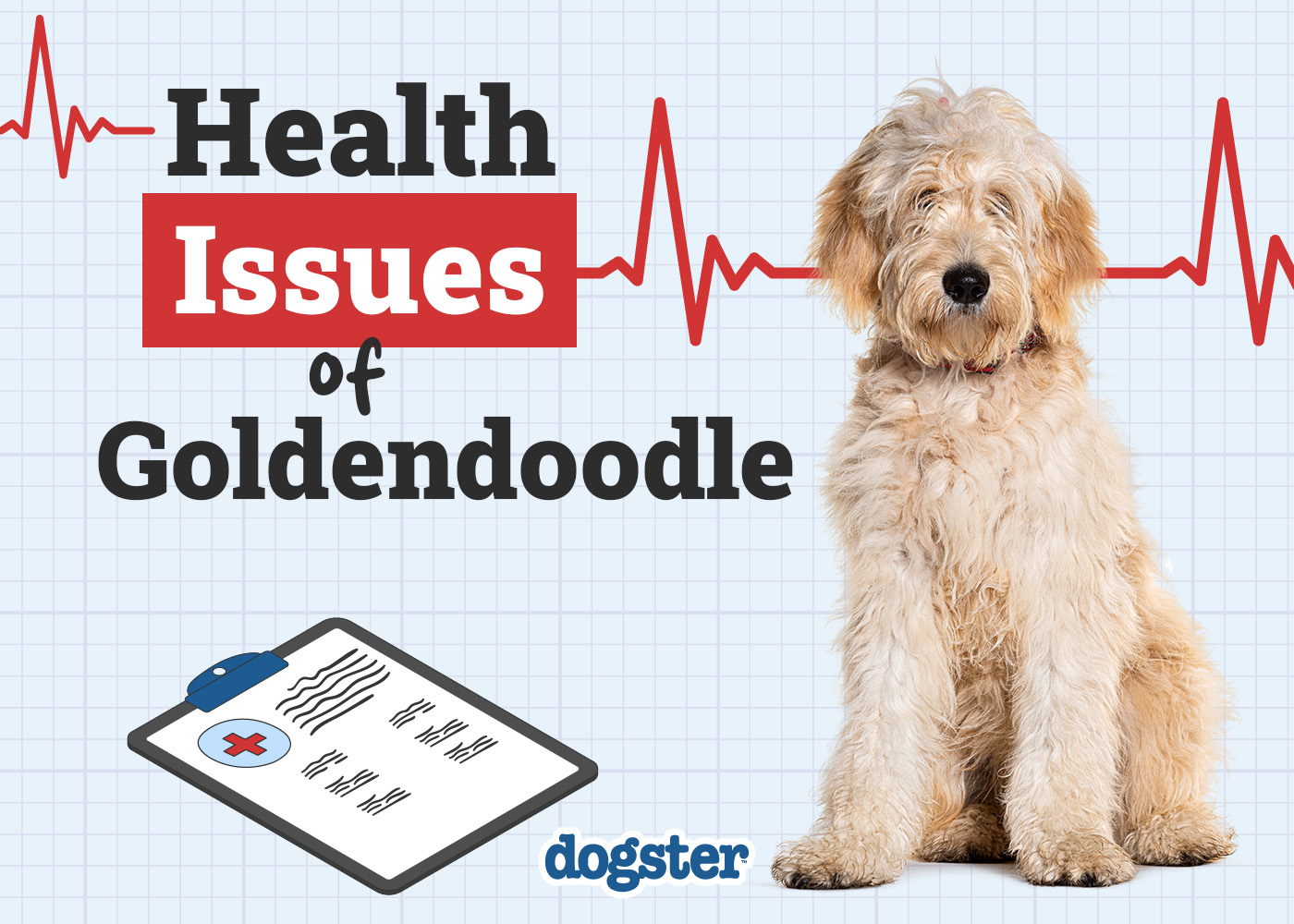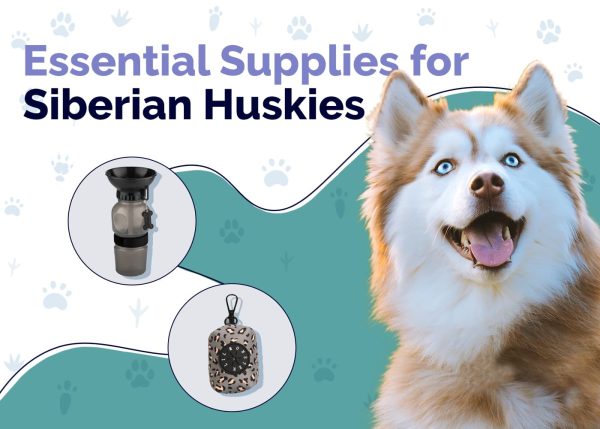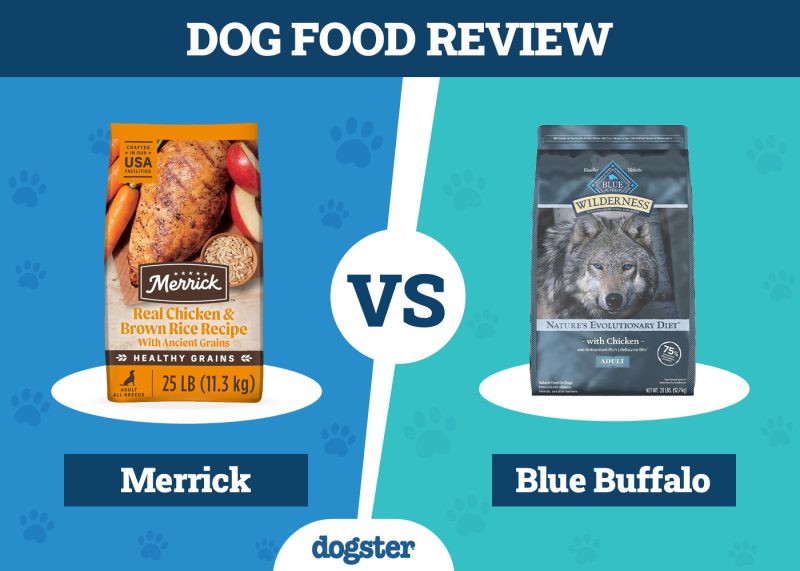The Goldendoodle is an increasingly popular hybrid dog breed across North America that has become a favorite in households with families and new dog parents alike. All dog breeds are susceptible to health issues due to their breeding history, where they are bred, parent genetics, and more. Things like their diet and healthcare can greatly impact the number of health conditions they encounter throughout their lifetime. Goldendoodles suffer from conditions linked to their genetics as a cross between the Golden Retriever and Standard Poodle. Keep reading to learn about a few health issues that can occur in a Goldendoodle.

The 4 Goldendoodle Health Issues
1. Joint Conditions
Goldendoodles might encounter issues related to their hips and elbows through their adult and senior years that are genetic predispositions from both their Golden Retriever and Poodle backgrounds. In this case, the Golden Retriever’s genetics might be more to blame for issues with abnormal joint growth and discomfort.
You might notice these conditions or health issues occur by the following signs in your dog: bunny hopping, lameness, stiff joints, difficulty raising, trouble walking normally, and slower movements than normal. All these signs of joint problems must be addressed promptly and diagnosed accordingly so that your vet can make a treatment plan that is specific to your dog’s needs.
2. Eye Diseases or Conditions
There are a few health issues related to Goldendoodle’s eyes that can occur in their lifetime. Eye conditions such as extra eyelashes, entropion, cataracts, glaucoma, and problems in their retinas can become an issue with this breed.
A dog’s vision can deteriorate over time due to issues with their eyes, and signs can be noticed when your Goldendoodle reaches mid-adult age. You may notice your dog gets worse at navigating around the home at night. It may not happen as much during the day because dogs can use their other senses to remember what’s in their surroundings.

3. Digestive Issues
The Goldendoodle is predisposed to having digestive issues related to their stomach, intestines, and pancreas. There are certain conditions, such as gastritis, colitis, exocrine pancreatic insufficiency, pancreatitis, and gastric dilation-volvulus (GDV), that can occur during your Goldendoodle’s life.
Some health issues related to your dog’s digestive system can be difficult to diagnose and treat unless you work closely with your veterinarian. Treatment for most of these conditions may require a change in diet or medications, while GDV, for example, is a life-threatening situation that requires urgent medical intervention, often involving surgery.
If you are concerned about the health and well-being of your pet, we recommend getting in touch with a vet for guidance.
If you need to speak with a vet but can't get to one, head over to PangoVet. It's our online service where you can talk to a vet online and get the advice you need for your dog — all at an affordable price!
4. Weight Management Problems
A common health issue with Golden Retrievers, half the mix of the Goldendoodle, is weight management problems. The top way to ensure your Goldendoodle is not affected by issues related to their weight is to keep them in a healthy body condition, provide them with a high-quality diet, and measure their daily portion. This includes reducing the number of extra treats they consume.
Also, obesity can occur in dogs, which can affect a number of other areas of their bodies and overall health. Things like mobility issues can be a result of weight problems, in addition to having digestive problems, issues with going to the bathroom, and more.


Summary
It’s important to recognize the signs and symptoms of these common health issues that your Goldendoodle may encounter throughout their life. If you notice any physical or behavioral changes in your dog, visit a veterinarian.
Research the breed of dog you have to be aware of any conditions they may be predisposed to or genetic issues that are known to affect them. Catching these types of issues right away may not stop them altogether, but it can help to give your dog a long and healthy life.
Featured Image Credit: ZeedMedia, Shutterstock























